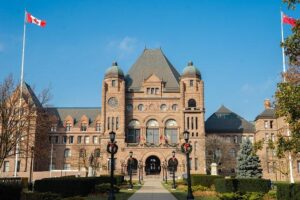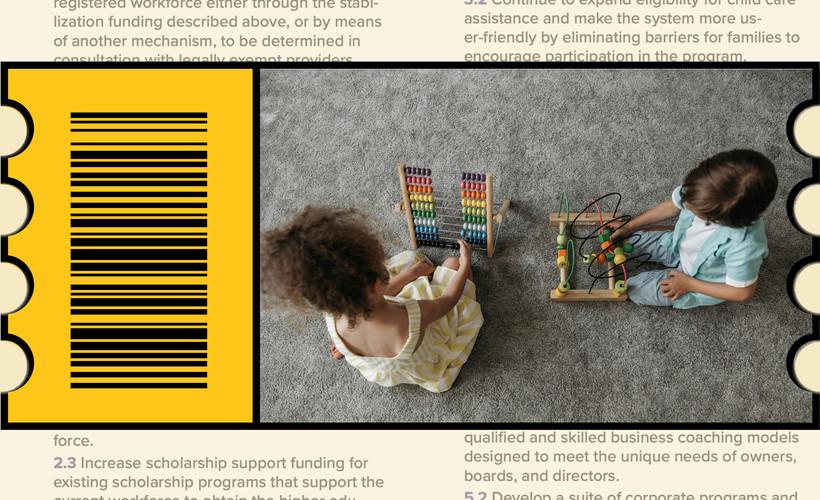Escalating Childcare Voucher Crisis Amid NYC-Albany Budget Deadlock
A prolonged budget deadlock between New York City and Albany has plunged over 60,000 families into uncertainty regarding their childcare voucher support. These vouchers are a lifeline for many low- and moderate-income households, helping to offset the high costs associated with early childhood education. As funding negotiations drag on, parents are increasingly confronted with the difficult choice between maintaining employment and securing reliable childcare for their young children.
The impasse has far-reaching consequences, with childcare providers warning of potential shutdowns that would worsen an already critical shortage of licensed care facilities. Families are scrambling to find alternative solutions amid rising childcare expenses. This crisis highlights the intricate dependency between municipal and state governments in sustaining essential social programs. Central issues fueling the standoff include:
- Conflicting views on budget allocations necessary to keep the voucher program operational through fiscal year 2025.
- Disputes over eligibility criteria and program management that complicate consensus.
- The urgent imperative to stabilize the workforce in a recovering post-pandemic economy.
| Component | Effect | Current Situation |
|---|---|---|
| Voucher Funding | Jeopardizes support for 60,000+ families | On hold pending budget resolution |
| Childcare Providers | Risk of closures and staff layoffs | Operating under financial duress |
| Working Parents | Heightened financial instability | Seeking stopgap childcare options |
Families and Childcare Programs Face Growing Instability
Hundreds of early childhood centers are confronting unprecedented uncertainty as the budget deadlock threatens to cut off vital childcare funding. With tens of thousands of families caught in limbo, providers warn that prolonged delays could force service reductions or permanent closures, disrupting early learning and social development opportunities for young children. Parents are increasingly anxious about securing safe, consistent care environments.
Advocates point to several urgent challenges affecting both families and childcare programs:
- Disrupted access to subsidized childcare, leaving working parents with few affordable alternatives.
- Staff recruitment and retention difficulties as providers hesitate to expand without assured funding.
- Program shutdowns disproportionately impacting economically disadvantaged neighborhoods.
| Stakeholder | Consequences | Level of Urgency |
|---|---|---|
| Families | Childcare interruptions; financial hardship | Severe |
| Early Childhood Centers | Funding shortfalls; closure risks | Critical |
| Childcare Staff | Job insecurity; reduced hours | High |
Broader Economic Repercussions of the Childcare Funding Crisis
The childcare voucher freeze’s impact extends well beyond immediate childcare challenges, threatening the economic well-being of thousands of families. Many parents are forced to reduce work hours or leave the workforce entirely due to lack of affordable care, leading to diminished household incomes. This, in turn, affects local economies, particularly sectors like retail, public transit, and hospitality, which depend heavily on working families as both employees and consumers.
Economic analysts caution that ongoing uncertainty could deepen post-pandemic recovery disparities, especially among low- and middle-income households. Without stable childcare support, families may face increased expenses for temporary care or lose wages, pushing many closer to financial distress. The following table summarizes key economic impacts identified in recent studies:
| Area of Impact | Consequence | Estimated Magnitude |
|---|---|---|
| Labor Force Engagement | Decline in parental employment rates | Up to 25% reduction |
| Household Earnings | Monthly income losses | $500 to $800 on average |
| Local Commerce | Drop in consumer spending | Approximately 10% decrease |
| Temporary Childcare Expenses | Increased costs for informal care | Average $300 per month |
These financial strains highlight the critical need for a prompt resolution to the budget impasse to safeguard both family welfare and economic stability.
Experts Urge Bipartisan Action to Resolve Childcare Funding Impasse
Policy specialists are sounding urgent calls for cooperation between New York City and Albany officials to address the frozen childcare voucher program, warning of severe consequences for vulnerable families. With over 60,000 children suddenly losing access to affordable childcare, advocates stress the necessity of bipartisan efforts to avert a crisis that threatens children’s development and parents’ employment.
Experts emphasize that without vouchers, families are forced into costly private care or unstable informal arrangements, undermining progress toward economic fairness and healthy child development. To break the deadlock, analysts recommend a comprehensive strategy including:
- Emergency interim funding to resume voucher payments immediately
- Long-term budget guarantees insulated from political conflicts
- Improved oversight mechanisms to ensure fair distribution of childcare resources
- Joint city-state task forces to expedite decision-making and program management
| Focus Area | Risk Level | Suggested Remedy |
|---|---|---|
| Family Economic Security | High | Immediate release of funds |
| Child Development | Moderate | Expand access to quality care |
| Workforce Participation | High | Support initiatives for parental employment |
Final Thoughts on the Childcare Voucher Deadlock
As the budget stalemate between New York City and Albany persists, thousands of families remain trapped in a precarious situation without access to essential childcare assistance. With over 60,000 households awaiting clarity, advocacy organizations are pressing for an expedited resolution to prevent further disruption to children’s care and the economic stability of working parents. The coming weeks will be pivotal as policymakers face increasing pressure to reach a consensus and restore a vital support system for New York’s families.













